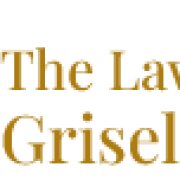Best Credit Repair Lawyers in Texas
Share your needs with us, get contacted by law firms.
Free. Takes 2 min.
Or refine your search by selecting a city:
List of the best lawyers in Texas, United States
About Credit Repair Law in Texas, United States
Credit repair refers to the process of improving or correcting your credit reports and scores. In Texas, as in the rest of the United States, there are both federal and state laws that govern how credit repair can be done and what rights consumers have. The purpose of these laws is to protect consumers from unfair credit practices, provide opportunities to dispute errors on credit reports, and regulate companies that offer credit repair services. Credit repair can range from correcting mistakes on your credit report to dealing with aggressive debt collectors. Because Texas has unique regulations in addition to federal protections, understanding your rights is key to successful credit repair.
Why You May Need a Lawyer
There are several situations where legal assistance in credit repair can be crucial. You may need a lawyer if you are facing constant harassment from debt collectors, dealing with inaccurate or fraudulent information on your credit reports that you cannot resolve alone, or have been the victim of identity theft. Lawyers can also help if you are considering bankruptcy, being sued for old debts, or have disputes with credit repair companies that have violated your rights. Additionally, if you suspect that a business or individual has acted illegally in harming your credit or mishandling your information, legal counsel can help protect your interests.
Local Laws Overview
In Texas, credit repair is governed by both federal and specific state laws. The Texas Credit Services Organizations Act regulates companies that offer credit repair services. According to this law, credit repair organizations must provide a detailed written contract, allow a three-day right to cancel, and register with the Texas Secretary of State. Additionally, they cannot charge any fees before services are completed or make misleading claims about what they can achieve.
Consumers are also protected under the federal Fair Credit Reporting Act (FCRA) and the Fair Debt Collection Practices Act (FDCPA). These laws provide the right to dispute errors on credit reports and prohibit abusive or deceptive debt collection practices.
Texas has some of the strongest consumer protection laws in the country. For example, the Texas Deceptive Trade Practices Act provides broader remedies for consumers who have been victims of false or misleading credit practices. If your rights have been violated, you have the option to pursue complaints through state agencies or the court system.
Frequently Asked Questions
What is credit repair?
Credit repair is the process of identifying and correcting inaccuracies on your credit report, improving your credit score, and negotiating or settling outstanding debts.
Is credit repair legal in Texas?
Yes, credit repair is legal in Texas as long as it complies with state and federal laws. Both consumers and companies offering credit repair services must follow strict guidelines.
Can I repair my credit myself, or do I need a company or lawyer?
You have the right to dispute errors on your credit report yourself for free. However, for more complex issues, such as large-scale identity theft or legal disputes with creditors, you may benefit from legal assistance.
What are my rights if a credit reporting agency or debt collector makes a mistake?
You have the right to dispute inaccurate information with the credit bureau, and they must investigate and correct errors. Debt collectors are also required to follow fair practices and cannot misrepresent the amount you owe.
How do I know if a credit repair company is legitimate in Texas?
Legitimate companies must be registered with the Texas Secretary of State, provide a written contract, allow a three-day cancellation window, and not charge fees before services are rendered.
What should I do if I am a victim of credit repair fraud?
Contact the Texas Attorney General’s Office and consider consulting an attorney. You may be entitled to recover damages under state or federal law.
Can a lawyer remove negative items from my credit report?
A lawyer cannot remove legitimate negative items, but they can help dispute inaccurate or outdated information and ensure your legal rights are protected.
How long does negative information stay on my credit report in Texas?
Most negative information, such as late payments or collections, stays on your credit report for up to seven years. Bankruptcies can remain for up to ten years.
How can I check my credit report in Texas?
You are entitled to one free credit report per year from each of the three major credit bureaus. You should check your report regularly to spot and address errors early.
What are the warning signs of a credit repair scam?
Warning signs include promises of a quick fix, asking for payment upfront, not providing a written contract, or telling you to misrepresent your information to creditors or credit bureaus.
Additional Resources
For more information and assistance, you may consult the following resources:
- Texas Attorney General’s Office - Consumer Protection Division
- Texas Secretary of State - Credit Services Organizations Registration
- Federal Trade Commission (FTC) - Credit Repair Resources
- Consumer Financial Protection Bureau (CFPB) - Dispute Tools and Guidance
- Local Legal Aid Organizations in Texas
- Nonprofit Credit Counseling Services
Next Steps
If you need legal help with credit repair, start by gathering all relevant documents, such as credit reports, correspondence with creditors, and contracts with any credit repair services. If you feel your rights have been violated or your situation is complex, consider consulting a qualified attorney who specializes in credit repair and consumer protection law in Texas. Check the credentials of any credit repair company you consider working with, ensuring they are registered with the state and follow legal guidelines. You may also file complaints with state or federal consumer protection agencies if needed. Taking timely and informed action is the best way to protect your credit and your financial future.
Lawzana helps you find the best lawyers and law firms in Texas through a curated and pre-screened list of qualified legal professionals. Our platform offers rankings and detailed profiles of attorneys and law firms, allowing you to compare based on practice areas, including Credit Repair, experience, and client feedback.
Each profile includes a description of the firm's areas of practice, client reviews, team members and partners, year of establishment, spoken languages, office locations, contact information, social media presence, and any published articles or resources. Most firms on our platform speak English and are experienced in both local and international legal matters.
Get a quote from top-rated law firms in Texas, United States — quickly, securely, and without unnecessary hassle.
Disclaimer:
The information provided on this page is for general informational purposes only and does not constitute legal advice. While we strive to ensure the accuracy and relevance of the content, legal information may change over time, and interpretations of the law can vary. You should always consult with a qualified legal professional for advice specific to your situation.
We disclaim all liability for actions taken or not taken based on the content of this page. If you believe any information is incorrect or outdated, please contact us, and we will review and update it where appropriate.
Browse credit repair law firms by city in Texas
Refine your search by selecting a city.














